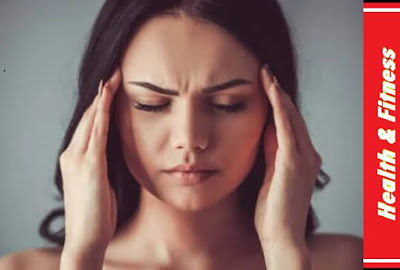The most common 4 types of headache and treatment
In general, taking too much medication without a prescription can lead to tension headaches. However, stress, caffeine withdrawal, and lice can also cause headaches.
 |
| Headache and treatments |
4 types of headache and treatment
1. Migraine
 |
| migraine-symptoms- treatment -and causes |
Believe it or not, migraines are hereditary. If you suffer from migraine headaches, it means that someone else in your family is very likely to do the same.
Migraine headaches are the most prevalent headaches following tension headaches, and have the following characteristics:
The pain appears in one part of the head and can last up to 3 days.
The pain usually appears to be throbbing. Then it will increase as you move in a certain way. For example, it may stretch when you wake up after bending or sitting.
Extreme sensitivity to light or noise. Therefore, resting in the dark or in silence will make you feel better.
You may feel nauseous without treatment.
Migraine can be caused by menstruation, stressful situations, certain foods, certain medications or medications, or weather changes.
There is no cure for migraine headaches. However, with the right treatment, fitness, and stress management techniques, the frequency can be reduced.
2. Tension Headache
The second type is also referred to as a "main" headache. In contrast to migraine headaches, pain from a tension headache usually appears in the back of the head, cervix, or forehead. In general, tension headaches are not strong and you will not experience nausea or vomiting.A tension headache is not as debilitating as a migraine. In general, people with tension headaches can have a normal day. You can even exercise. However, tension headaches are much more frequent and can last from 1 to 7 days.
In general, taking too much medication without a prescription can lead to tension headaches. However, stress, caffeine withdrawal, and lice can also cause it. In many cases, ibuprofen can help reduce pain.
3. Chronic Headache
Chronic headache is a type of headache caused by taking the medication without a prescription, such as a tension headache. The only difference from a tension headache is that you have a headache almost every day. In fact, people with chronic headaches usually suffer from an average of 15 days a month.To prevent these, it is better not to take too many drugs, and at least to talk to your doctor to evaluate which of the drugs you are taking is really necessary.
4. Cluster headaches and treatment
The last type of headache is a cluster headache. Cluster headaches and migraines have the same symptoms, but they also have the following symptoms:- Unbearable pain: Often there is pain around the eyes and on the sides of the head.
- The nose is stuffy, and sometimes the side of the head hurts with a runny nose.
- The eyelids around the eye are sagging and swollen.
- Pale skin or red skin
Cluster headaches usually last only a few minutes but maybe painful several times the same day. Usually, these headaches appear at the same time as the night. Often, the occurrence of cluster headaches can last for several weeks.
As with previous headaches, you may want to consider treatments to suppress this outbreak. However, only ibuprofen or paracetamol may be used to treat headaches.
Are there any symptoms of the headache mentioned earlier? Have you ever been diagnosed with migraine or other headaches?
Now that you know about different types of headaches, you will be able to better identify them. Don't forget Only the treatment prescribed by your doctor should be followed.


ConversionConversion EmoticonEmoticon